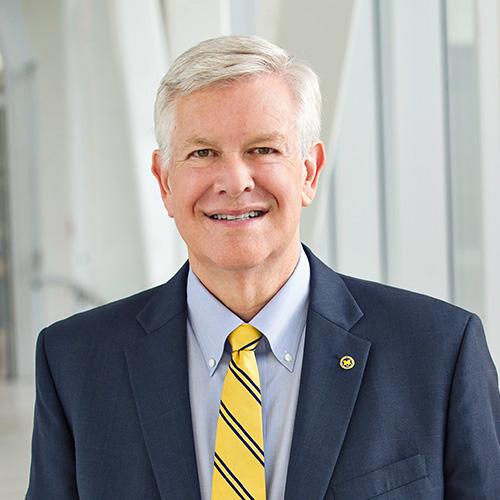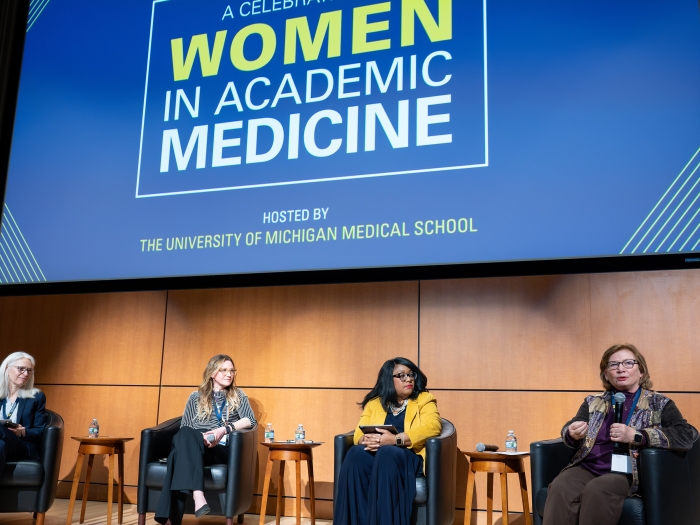
McKay Professor
Executive Vice President, Medical Affairs, University of Michigan
Chief Executive Officer, Michigan Medicine
The University of Michigan Board of Regents appointed Marschall S. Runge Executive Vice President for Medical Affairs and CEO of Michigan Medicine in March, 2015 and Dean of the Medical School in January, 2016. In this senior leadership role, he has responsibility for the health system and medical school as an executive officer of the university (EVPMA), and general oversight of the medical school as the Dean.
Before coming to U-M, Dr. Runge was executive dean for the University of North Carolina (UNC) School of Medicine, the Charles Addison and Elizabeth Ann Sanders Distinguished Professor of Medicine at UNC-Chapel Hill (UNC-CH), chair of the UNC-CH Department of Medicine, and principal investigator and director of the NIH-funded North Carolina Translational and Clinical Sciences (NC TraCS) Institute, one of 55 medical research institutions working together as a national consortium to improve the way biomedical research is conducted across the country.
An honors graduate of Vanderbilt University with a B.A. in Biology and a Ph.D. in Molecular Biology, Dr. Runge earned his M.D. from the Johns Hopkins School of Medicine, where he was an intern and resident in internal medicine. He then completed a cardiology fellowship at Harvard’s Massachusetts General Hospital and was a faculty member at Harvard.
Dr. Runge has been a physician-scientist for his entire career, combining basic and translational research with the care of patients with cardiovascular diseases and education. He is the author of over 200 publications in the field and holds five patents for novel approaches in healthcare.
What inspired you to pursue a career in this field?
I’ve always been drawn to the mystery of medicine. I’ve been a physician-scientist my entire career. This path has allowed me to work with patients, invent and patent novel approaches to care, and work with colleagues on research that can impact generations of people.
Why Michigan Medicine? Which attributes of this organization persuaded you to join us?
Our discoveries change care. Our care changes lives. By investing in research, education and patient care, we advance health to serve Michigan and the world. That’s what drew me to the University of Michigan.
What advice would you give others who wish to serve in a similar leadership role?
You can contribute in many ways but you’ll be most fulfilled if you focus on those areas you feel most passionate about.


